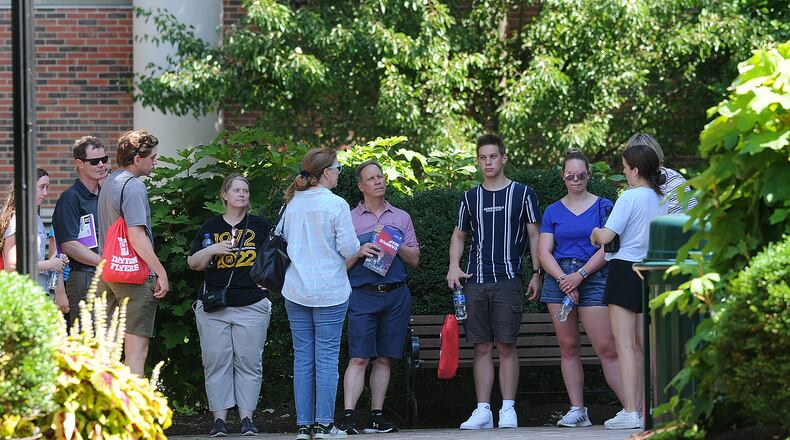Cases and hospitalizations from COVID-19 have skyrocketed in the last three weeks, according to the Ohio Department of Health. Cases have risen by 41% across Ohio and hospitalizations rose by 68% compared to three weeks ago. Many counties, including Montgomery, Greene, Butler, Clark, Champaign, Darke, Miami, Preble and Warren are labeled high risk by the CDC.
All the universities and colleges surveyed said they would continue to look at the spread of COVID-19 around the region and make decisions based on COVID-19 data.
Most universities surveyed – Central State University, Clark State College, Wright State University, University of Dayton, Ohio State University, Sinclair Community College and Edison State College – do not require masks, but do recommend them to be worn indoors, especially as COVID-19 cases climb. Miami University is requiring masks indoors at the red, or high-risk, level of COVID-19 spread in Butler County.
More universities are requiring students be vaccinated against COVID-19 than are requiring masks on campus. Ohio State and Miami require all students be vaccinated. Wright State requires student employees and all employees be vaccinated. Incoming students at UD are required to upload proof of vaccination, as are students living on Central State’s campus. All the universities also allow students to submit an exemption.
“While it feels like COVID is in the past, we are still seeing cases on and off-campus,” said Jessica Stark Rivinius, spokeswoman for Miami University. “Continue to take precautions and test if you have symptoms — it may not be a cold or allergies.”
University of Dayton officials said incoming students will get an email next week outlining what the students and their families need to know about coming to campus. The university dropped a requirement for employees of the university to be vaccinated in January.
The three community colleges do not have a vaccine mandate, other than in health care settings. Each college said they would continue to monitor the situation, but community colleges don’t typically have as many students living close together in a dorm setting as the region’s universities do.
“Based on the information available at this time, we are proceeding with caution, similar to this past spring,” said Matt Franz, senior vice president for technology, safety and strategic initiatives at Clark State College. “We are in frequent contact with local health officials and meet regularly to assess the impact of the disease on students and operations.”
Cathy Petersen, spokeswoman for Sinclair, said the college is closely monitoring the situation, but noted Sinclair has a lot of flexibility in how it can deliver classes.
“COVID-19 is still here, and new variants are emerging,” she said.
About the Author

